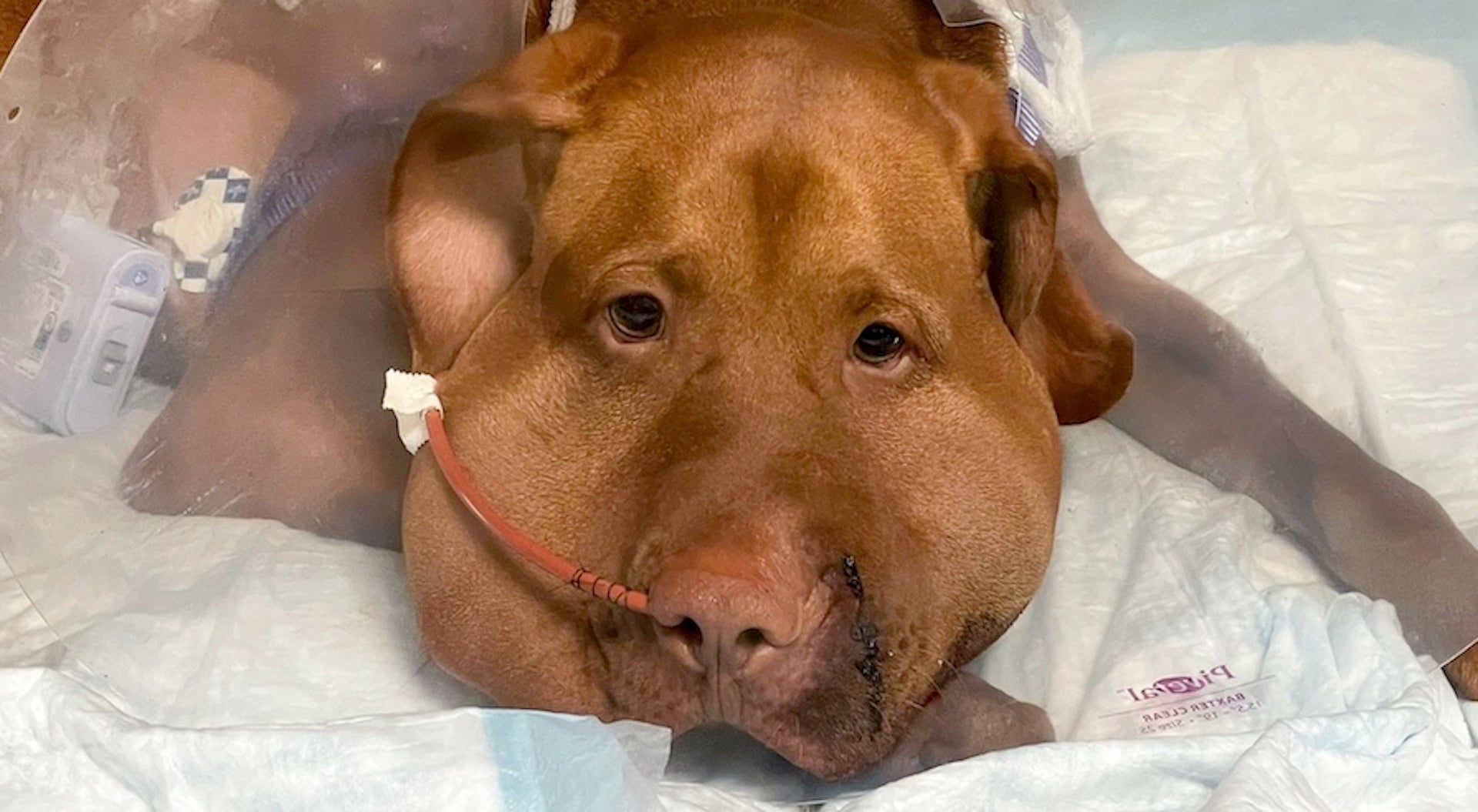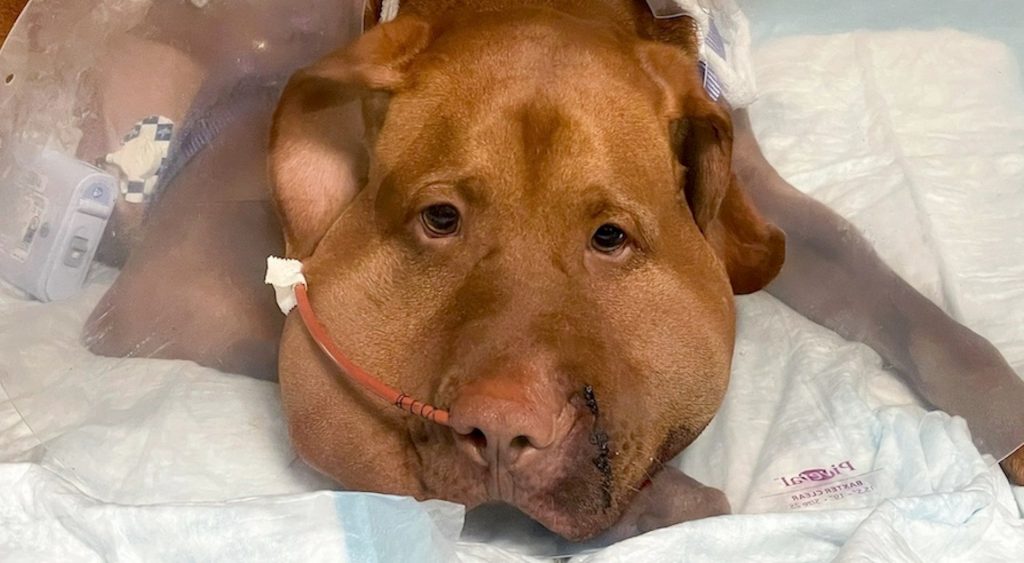Dogs are often considered to be a man’s best friend. They are loyal companions that bring joy and happiness to our lives. However, when it comes to the dangers of the great outdoors, it is important to be aware of the risks that our furry friends may face. One such risk is the threat of rattlesnake bites, which can be fatal to dogs if left untreated.
Rattlesnakes are common in many parts of the United States, especially in warm, dry areas. Unfortunately, these venomous snakes can pose a serious threat to dogs who may come into contact with them while out on a walk or hike. If a dog is bitten by a rattlesnake, it is important to act quickly and seek medical attention as soon as possible to avoid potentially fatal consequences.
Yes, dogs can die from rattlesnake bites if left untreated. Rattlesnake venom can cause severe damage to a dog’s organs and can lead to death within hours. Immediate treatment with antivenom is crucial for a dog’s survival. Symptoms of a rattlesnake bite in dogs include swelling, pain, and weakness. If you suspect your dog has been bitten by a rattlesnake, seek veterinary care immediately.

Do Dogs Die From Rattlesnake Bites?
Rattlesnake bites are a serious concern for dog owners, especially those living in areas where rattlesnakes are common. The venom of a rattlesnake can cause serious harm to dogs, and in some cases, can even be fatal. But just how deadly are rattlesnake bites for dogs? Let’s explore this topic in more detail.
Understanding Rattlesnake Bites
Rattlesnakes are venomous snakes that are found throughout the United States. Their venom is designed to kill prey and can be extremely dangerous to animals and humans alike. When a rattlesnake bites, it injects venom into the victim’s bloodstream, which can cause a variety of symptoms.
In dogs, the symptoms of a rattlesnake bite can include swelling, pain, bleeding, and difficulty breathing. In severe cases, the venom can cause organ failure and death. However, not all rattlesnake bites are deadly, and the outcome depends on a variety of factors.
Factors That Affect the Severity of Rattlesnake Bites
Several factors can affect the severity of a rattlesnake bite in dogs. These include:
- The size and age of the dog
- The location of the bite
- The amount of venom injected
- The time elapsed before treatment
Generally, smaller and younger dogs are more vulnerable to rattlesnake bites than larger and older dogs. Bites to the face and neck can also be more dangerous, as the venom can spread quickly to vital organs. The amount of venom injected also plays a role, as larger doses can cause more severe symptoms. Finally, the time elapsed before treatment can affect the outcome, as early treatment can reduce the severity of the symptoms.
Treatment Options for Rattlesnake Bites
If your dog is bitten by a rattlesnake, it’s essential to seek veterinary care immediately. The vet will evaluate the severity of the bite and determine the best course of treatment. Some possible treatment options include:
Antivenom
Antivenom is a medication that neutralizes the venom in the dog’s bloodstream. It’s the most effective treatment for severe rattlesnake bites and can save the dog’s life. However, it’s crucial to administer antivenom as soon as possible after the bite, as it’s less effective the longer you wait.
Pain Management
Rattlesnake bites can be extremely painful, and your dog will likely require pain medication to manage the discomfort. Your vet may prescribe painkillers or recommend over-the-counter pain medication.
Supportive Care
In severe cases, your dog may require supportive care, such as oxygen therapy, IV fluids, or hospitalization. These treatments can help stabilize your dog’s condition and improve their chances of recovery.
Preventing Rattlesnake Bites
The best way to protect your dog from rattlesnake bites is to take preventive measures. Here are some steps you can take to reduce the risk of snake bites:
Avoidance
One of the easiest ways to prevent rattlesnake bites is to avoid areas where they are common. If you live in a rattlesnake-prone area, keep your dog on a leash, and stay on designated trails.
Vaccination
Some veterinarians offer rattlesnake vaccines that can help reduce the severity of the symptoms if your dog is bitten. However, these vaccines are not foolproof and should not be considered a substitute for antivenom.
Training
Training your dog to avoid snakes can also help reduce the risk of bites. Teach your dog to stay away from snakes and to come when called, so you can avoid potential encounters.
Rattlesnake Avoidance Training
Some dog trainers offer rattlesnake avoidance training, which teaches dogs to recognize and avoid rattlesnakes. This training can be an effective way to reduce the risk of snake bites.
The Bottom Line
Rattlesnake bites can be deadly for dogs, but the outcome depends on several factors. If your dog is bitten by a rattlesnake, seek veterinary care immediately. With prompt treatment and supportive care, most dogs can recover from rattlesnake bites. To reduce the risk of snake bites, take preventive measures and consider rattlesnake avoidance training.
Frequently Asked Questions
Here are some common questions about rattlesnake bites and dogs.
What are the symptoms of a rattlesnake bite in dogs?
When a dog is bitten by a rattlesnake, they may experience symptoms such as swelling, pain, bruising, and bleeding at the bite site. Other symptoms may include vomiting, diarrhea, drooling, weakness, and difficulty breathing. It is important to seek immediate veterinary care if you suspect your dog has been bitten by a rattlesnake.
The severity of the symptoms can vary depending on the size of the dog, the location of the bite, and the amount of venom injected. Some dogs may recover with minimal treatment, while others may require hospitalization and antivenom therapy.
How can I prevent my dog from getting bitten by a rattlesnake?
There are several steps you can take to reduce the risk of your dog being bitten by a rattlesnake. One is to avoid areas where rattlesnakes are known to live, such as rocky or wooded areas. Keep your dog on a leash and under your control at all times when outdoors.
You may also consider getting your dog vaccinated with a rattlesnake vaccine, which can help reduce the severity of the symptoms if they are bitten. However, this vaccine is not a substitute for seeking immediate veterinary care if your dog is bitten.
What should I do if my dog is bitten by a rattlesnake?
If you suspect your dog has been bitten by a rattlesnake, it is important to seek immediate veterinary care. Do not attempt to treat the bite yourself, as this can be dangerous and ineffective.
Your veterinarian will assess the severity of the bite and may administer antivenom therapy, pain medication, and other supportive care as needed. It is important to follow your veterinarian’s instructions carefully and monitor your dog for any changes in their condition.
Can all dogs survive a rattlesnake bite?
The survival rate for dogs bitten by rattlesnakes can vary depending on a variety of factors, including the size of the dog, the location of the bite, and the amount of venom injected. Some dogs may recover with minimal treatment, while others may require hospitalization and antivenom therapy.
However, it is important to seek immediate veterinary care if you suspect your dog has been bitten by a rattlesnake. Delaying treatment can increase the risk of complications and decrease the chances of survival.
How long does it take for a dog to recover from a rattlesnake bite?
The recovery time for a dog bitten by a rattlesnake can vary depending on the severity of the bite and the treatment provided. Some dogs may recover in a few days with minimal treatment, while others may require weeks of hospitalization and rehabilitation.
Your veterinarian will develop a treatment plan based on the specific needs of your dog. It is important to follow their instructions carefully and monitor your dog for any changes in their condition during the recovery period.
What to do if your dog gets bit by a rattlesnake
In conclusion, dogs can indeed die from rattlesnake bites. These bites can cause a range of symptoms, including swelling, pain, and even death. However, there are steps that pet owners can take to protect their furry friends from these potentially deadly bites. For example, keeping dogs on a leash and avoiding high-risk areas can help reduce the risk of snake encounters. Additionally, there are vaccines and antivenom treatments available that can help mitigate the effects of a rattlesnake bite. By taking these precautions and seeking prompt medical treatment when necessary, pet owners can help keep their dogs safe from the dangers of rattlesnake bites.


